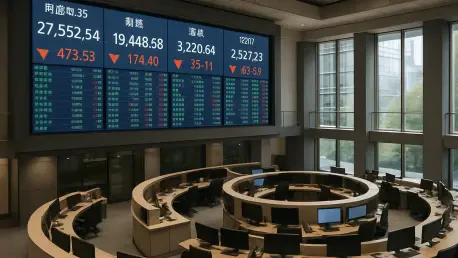
A comprehensive report from the United Nations on the world economic situation paints a picture of moderated momentum, projecting that global economic growth will decelerate to 2.7 percent this year before a marginal recovery to 2.9 percent in 2027. This overarching trend signals that the pace of

Navigating a Market of Contradictions A fierce battle between political anxiety and corporate confidence played out across global markets, leaving investors to navigate a landscape of stark contradictions. While macroeconomic storm clouds gathered on a day marked by rising geopolitical tensions and

An extraordinary political standoff is unfolding in Washington, as a single Republican senator has thrown a wrench into President Donald Trump's plans to reshape the Federal Reserve by vowing to block all of his nominees to the central bank. The dramatic move by Senator Thom Tillis of North

The Dawning of an Energy-Intensive Age The artificial intelligence revolution is here, powering everything from conversational chatbots to groundbreaking scientific research. But this digital leap forward is fueled by a voracious, and largely hidden, appetite for electricity. As tech giants build

A Wave of Optimism: Tracing Wall Street's Influence Across the Pacific A record-setting week on Wall Street, fueled by robust U.S. economic data, has sent a wave of optimism across global financial markets. As American indexes reached new heights, investors are closely watching to see if this

The delicate balance of global financial markets was starkly illustrated as a series of unexpected remarks from the U.S. President sent shockwaves from Wall Street across the Pacific, leaving Asian bourses to navigate a complex and contradictory landscape of investor sentiment. This recent episode